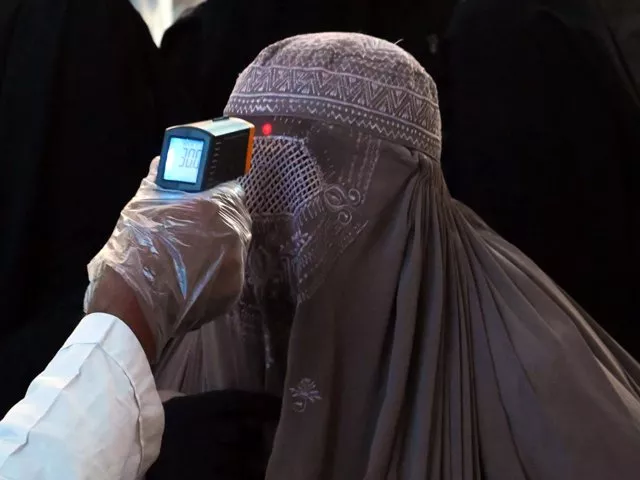Pandemic’ next wave could hit rural areas, experts warn
Think tank calls for effective coordination between Centre, provinces to protect rural economy
Owing to lack of functional and effective local body infrastructure, particularly in Punjab, it seems that the government is failing to reach out to and provide relief to the poor and marginalised communities residing in the rural areas of the country amidst the novel coronavirus (Covid-19) pandemic.Hence, the next wave of the pandemic in Pakistan could hit the rural areas, impacting agricultural workers and rural economy at a critical time unless the federal government ensures effective coordination through the Council of Common Interest (CCI) and shore up its preparedness at the tehsil and union council levels.
This was the crux of an online policy dialogue on “Rethinking Development amidst Covid-19 Crisis”. The dialogue had been organised by the Sustainable Development Policy Institute (SDPI).
King's College London Department of Geography Faculty Member Dr Daanish Mustafa, while emphasising the need for efficient public administration, said that the government should involve locals in its policymaking process as local knowledge was essential for an effective policy response over an extended period.
He urged the government to adopt a problem-solving approach to deal with the impending disaster by taking the local government and the people into the loop.
SDPI Executive Director Dr Abid Qaiyum Suleri said that the government is not effectively utilising the Ministry of Inter-Provincial Coordination and the constitutional forum of Council of Common Interest (CCI) during this crisis. Hence it appeared to be failing in ensuring effective coordination and collaboration.
“Our National Command and Control Authority may help overcome the national level operational challenges, but it may not be able to resolve the political differences between the centre and the provinces, which can only be resolved through the CCI,” Dr Suleri said.
He stressed the need for protecting agriculture workers and the rural economy through effective preparedness at the union council level and ensuring the entire food supply chain is secure.
Dr Suleri further said that the federal and provincial government must collaborate and must be on the same page to effectively fight the pandemic.
Karachi Urban Lab Head Dr Nousheen Anwar said that in response to the Covid-19 pandemic, the world has diverted its focus on the environment from mega-development.
She lamented that in the past, the subject of health was not a priority at all which now raises concerns on how this pandemic will affect the climate change agenda.
SDPI Joint Executive Director Dr Vaqar Ahmed said: “it is our collective failure because we all fail to assess the Covid-19 crisis and were unable to prepare ourselves to cope with it in advance.”
He said a large part of the solution lies in developing understanding around the local body system to work. Dr Vaqar stressed the need for rethinking through the channel determined by SDGs, and National development plans should reflect these goals.
SDPI Climate Change Department Head Dr Imran Khalid while moderating the session said that Covid-19 is a window of opportunity for the world to really rethink the approach to development and research agenda.
Published in The Express Tribune, April 9th, 2020.


COMMENTS
Comments are moderated and generally will be posted if they are on-topic and not abusive.
For more information, please see our Comments FAQ